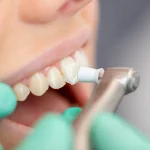Introduction
The immune system is the body’s primary defense mechanism against pathogens in the quest for optimal health. It tirelessly works to fend off bacteria, viruses, and other invaders that could potentially cause harm. A robust immune system is essential for maintaining health and preventing diseases. While a balanced diet rich in nutrients is the foundation of a strong immune system, vitamin boosters have emerged as powerful allies in enhancing its efficacy. These boosters contain concentrated doses of essential vitamins designed to fill nutritional gaps and fortify the body’s immune defense. By understanding and leveraging the role of these vitamins, individuals can proactively support their immune systems, leading to better health outcomes.
The Importance of Vitamins for Immune Health
Vitamins are organic compounds vital for the proper functioning of the human body. They play a critical role in metabolism, growth, and overall health. Among their many functions, vitamins are crucial in bolstering the immune system. They help produce and function immune cells, protect against oxidative stress, and enhance the body’s natural ability to fight infections. Understanding the significance of vitamins in immune health provides a clear rationale for their supplementation in the form of boosters. For instance, a customized IV drip boost can deliver a quick and efficient dose of essential vitamins directly into the bloodstream, bypassing the digestive system for immediate effect. This ensures that the vitamins are readily available by the body’s immune cells, thus optimizing their effectiveness.
Key Vitamins for Immune Support
Several vitamins have been identified as key players in supporting immune health. Each of these vitamins contributes uniquely to the maintenance and efficiency of the immune system:
Vitamin C: Perhaps the most well-known vitamin for immune support, Vitamin C aids in the production of white blood cells, which are essential for fighting infections. It also acts as a potent antioxidant, protecting cells from harmful free radicals. Regular Vitamin C intake can help reduce the duration of common colds and boost overall immune function.
Vitamin D: This vitamin supports the immune system by modulating the innate and adaptive immune responses. A deficiency in Vitamin D has been linked to increased susceptibility to infections. Adequate Vitamin D levels can enhance the pathogen-fighting effects of monocytes and macrophages—white blood cells essential to immune defense.
Vitamin E: Another powerful antioxidant, Vitamin E, helps prevent oxidative stress that can damage immune cells. It also enhances the function of T-cells, a type of white blood cell crucial for immune responses. A steady supply of Vitamin E through diet or supplements is beneficial for maintaining the structure and function of immune cells.
Vitamin A: Vitamin A is essential for maintaining the structure and function of the cells involved in immune responses, acting as a barrier to infections. It is also involved in the production of mucosal barriers and the skin’s immune function, both of which are critical in preventing pathogens from entering the body.
Vitamin B6: This vitamin is involved in producing neurotransmitters and is vital for supporting biochemical reactions in the immune system. It is necessary for the synthesis of nucleic acids and protein metabolism, which are essential for the growth and development of new immune cells.
Impact of Vitamin Boosters on the Immune System
Vitamin boosters are formulated to provide a concentrated dose of vitamins that may be lacking from diet alone. These boosters are especially beneficial in today’s fast-paced lifestyle, where nutritional needs may not always be met through regular meals. By offering precise doses of essential vitamins, boosters can enhance the immune system’s ability to fight illnesses. The quick absorption of vitamins in these supplements aids in faster immune response and recovery, making them ideal for those seeking to fortify their health against seasonal illnesses, travel-related stressors, or instances of physical or mental exertion. Moreover, the convenience of these boosters makes them an attractive option for individuals looking to improve their health without significantly altering their daily routines.
Integrating Boosters into Daily Life
Incorporating vitamin boosters into daily routines can be straightforward and highly beneficial. These supplements come in various forms, including tablets, capsules, powders, and liquid IV sprays. Choosing a convenient form that fits into your daily schedule is essential. Always consult with a healthcare provider to determine your specific vitamin needs and the appropriate dosage. Balanced nutrition should remain the foundation of your health regimen, with vitamin boosters serving as an adjunct to fulfill any deficiencies. Additionally, staying informed about potential interactions between vitamin supplements and medications is crucial to stay safe.
Conclusion
Vitamin boosters serve as formidable allies in the pursuit of strengthening the immune system. By delivering essential nutrients in concentrated doses, these boosters support the body’s natural defenses and optimize its response to pathogens. Emphasizing the critical role of vitamins such as C, D, E, A, and B6 is essential in understanding how to utilize these supplements effectively. By integrating vitamin boosters into a healthy lifestyle, one can effectively fortify their immune system, paving the way for improved overall health and well-being. As with any health regimen, the key lies in balance and informed choices to achieve optimal results.
Vitamin boosters can also help reduce recovery time from illnesses by providing the body with the nutrients it needs to heal efficiently. They are particularly beneficial during periods of heightened stress, seasonal changes, or when exposure to germs is more frequent. Vitamin boosters help reduce the severity and duration of common colds or other minor ailments by ensuring the body maintains optimal nutrient levels. Combining vitamin boosters with a balanced diet, regular exercise, and proper hydration can further enhance immune resilience. Consulting with a healthcare professional can provide personalized guidance on the most suitable vitamin boosters for individual needs and lifestyle choices.







